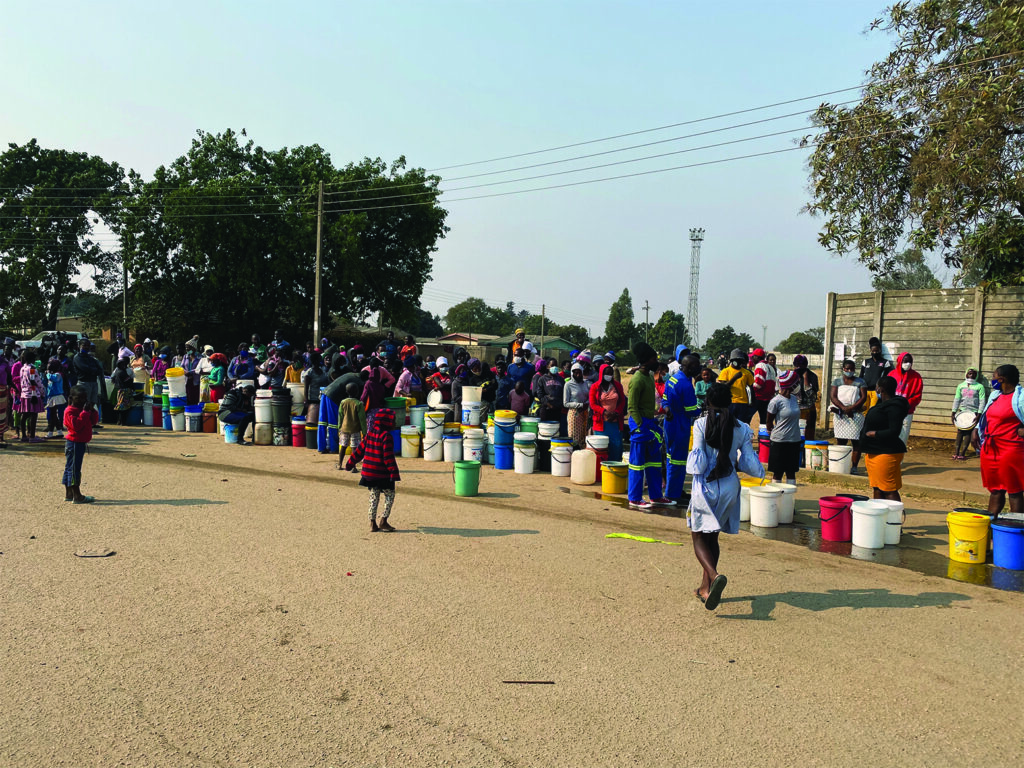
ZIMBABWE has languished for far too long in a morass of economic quagmire and the time has come for the country to extricate itself from the indignities of mass poverty.
Importantly, it is critical for us as a nation to rethink our governance and economic models, so that the country becomes a globally competitive entity with quality standard of living for its citizens; sustainable economic growth and solid service delivery.
In this instalment, I will proffer a few ideas on how the country can place itself on a pedestal of sustainable economic growth, development and social transformation.
Global Competitive Index A good starting point is for the country to be in tandem with global growth indicators, such as the World Economic Forum’s Global Competitiveness Index, which measures a country’s economic growth and development, using a number of indicators, including infrastructure, institutions, macro-economic health, technological readiness, ease of doing business, government efficiency, service delivery, amongst other indices.
Specifically, the World Economic Forum defines global competitiveness as the ability of a country to achieve sustained high rates of growth in Gross Domestic Product (GDP) per capita.
Using this as a yardstick, it is thus important for us as a nation to take stock of where we are, and then re-imagine or rethink how we can place the country on a trajectory of sustainable growth and transformation; which in turn will improve the standard of living for citizens.
Standard of living can be termed as the material well-being of people and it can be measured by factors, such as income, access to goods and services, including health, education etc. It is the dream of every Zimbabwean to have a decent quality standard of living and in any electoral contest the contestation should be about the political entity or set of individuals who/which is/are best able to deliver quality standard of living for the citizens through clearly articulated programmes of actions, strategies, policies, or in the electoral case well thought out manifestoes.
Governance/leadership At the epicentre of a country’s ability to turn its fortunes around is the critical issue of governance and leadership. Leadership expert John Maxwell aptly sums this thinking through his dictum, everything rises and falls on leadership.
- Chamisa under fire over US$120K donation
- Mavhunga puts DeMbare into Chibuku quarterfinals
- Pension funds bet on Cabora Bassa oilfields
- Councils defy govt fire tender directive
Keep Reading
Critically, our definition of leadership should not be limited to political leadership, but the entirety of leadership in the corporate sector, civil society, arts, academia, sport, civic and community arenas.
Leadership across different sectors requires crosscutting qualities of servanthood, adaptability, envisioning, integrity and enterprise. Leadership is the software that creates a template for sustainable societal transformation, community development and economic growth and this is the foundation that the nation should build in order for meaningful and incremental socio-economic development to take place.
A meritocratic leadership model should be central to nation-building. Meritocracy refers to government by merit, and merit is not limited to academic qualifications and performance, but craft competence in a given field or given fields, a track record of achievement and demonstrable potential, enterprise and talent.
Having said this, I would like to say that elections have become a meaningless political ritual where political parties routinely recycle their cadres, largely pre-occupied by desperate collective desires to occupy political office at any cost through any means possible and chiefly through two main political antagonists, Zanu PF and Citizens Coalition for Change (CCC). It is about time elections became a contest of ideas not a glorified personality pageant. In the aftermath of the ignominious exit of Conservative Party leader Boris Johnson from office no less than 11 contenders have emerged from his party for the post.
Interestingly, the issue which appears central to all of them is the issue of taxation. This is an internal contest and it is already clear what issues are at stake. For Zimbabwe what issues are at stake in the 2023 elections and what do the different political parties stand for ideologically or idea-wise?
What policy propositions does the ruling party have to extricate the country from this economic quagmire? What alternative policies and leadership do opposing parties have? What policy propositions do contestants for municipal and House of Assembly have? What policy propositions do presidential aspirants for the 2023 elections have or is it an issue of personalities, emotions, history and factional interests?
Local governance leadership Local governance must be saved from the jaws of partisan politics. Ideally, political party electoral politics must be done away with at local authority level and replaced by a meritorious candidate; with a track record of community service or those who can pitch feasible ideas capable of transforming local government and service delivery.
The rot has crept in at the local level with political opportunists sneaking in through political back doors using the popularity of the country’s parties Zanu PF and CCC.
Local government is the basis of a thriving democracy and sound service delivery because it is that level of governance which is closer to the people and is engaged with daily issues that affect people. It only stands to reason that quality councillors are needed to debate and enact policies and strategies for the collective well-being of municipalities.
Important financial decisions that affect the collective well-being of citizens are made at this level, but the country has left this critical aspect of governance to chance, giving room to corruption and inept governance across the political divide.
The country needs a new political culture and architecture, which recognises and promotes an efficient, devolved governance system. The idea of devolution enshrined in Section 272 of the constitution is instead elusive if we do not have the right kind of leaders and managers at local level. The devolution economic dividend can only be delivered through able leadership at micro-level.
Policies and institutions In order to deliver a quality standard of living for citizens, a country needs policies which address the imperatives of a growing sustainable economy. Stability and growth in themselves have an indelible link with coherent policy formulation and implementation.
Policy instability through random and regular enactment of statutory instruments can undermine business and investor confidence. It is thus essential for the executive arm of government to ensure that policy pronouncements are consistent with broader economic strategy growth imperatives and are not diametrically opposite to the global goals of sustainable growth to deliver quality standard of living for citizens.
For example, in May 2022 the government in a bid to arrest a currency slide and inflation banned banks from issuing loans in a move, which was clearly addressing the symptoms of a deeper macroeconomic issue.
Thankfully, the ban was later on reversed, but such policy incoherence and unpredictability has a negative impact on markets, currency stability, investor confidence and business growth.
There is a need to respect the independence of the diverse arms of government and institutions, which exist to protect the public interests. The Reserve Bank is one such institution whose independence should not be undermined.
But it should not, however, become law unto itself as was the case in the 2006-2007. The independence of the legislature and judiciary are critical as we mould a stable, democratic, people-centred model of governance, which delivers a quality standard of living to citizens.
These independent arms of government ensure that there are adequate checks and balances for the general good. Importantly the Chapter 12 institutions, Zimbabwe Human Rights Commission, Zimbabwe Electoral Commission, Zimbabwe Gender Commission and the National Peace and Reconciliation Commission are institutions, which need to be strengthened by ensuring that they are adequately resourced and accountable to parliament.
Strong, independent institutions will provide a stable governance apparatus, which is foundational to building business and investor confidence. There is a link between institutions and global competitiveness, the respect for independent commissions guarantees such a dispensation.
A sound political/governance architecture epitomised by sound legal frameworks, pragmatic policymaking, robust implementation and a culture of strong independent institutions is essential in building the foundations of a transformational state.
This is just the first of an instalment of four other articles, which will explore how we can re-imagine and rebuild Zimbabwe. In the other articles I will look at the economy, service delivery, a green economy and technology.
- Nkomo is a writer and author of the book No Holds Barred.










